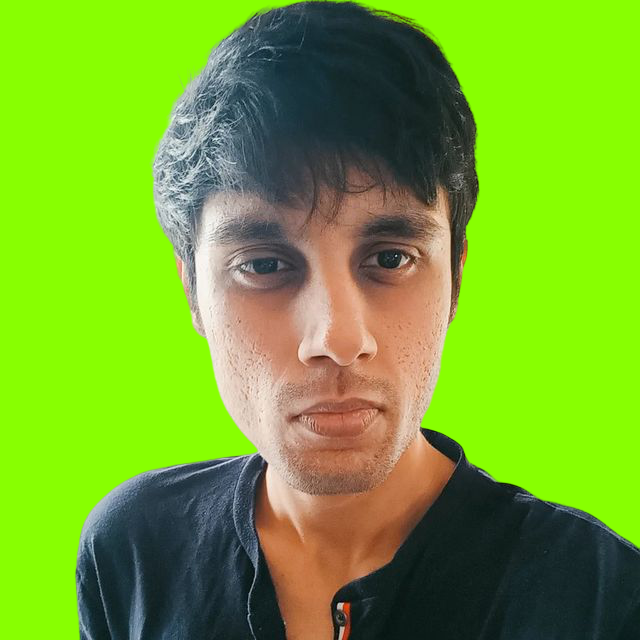Freedom From The Known by J Krishnamurti explains why our ability to see things in totality is crucial to living a life full of energy. The author also explains why the observer is the observed.
[amazon box=”0060648082″ template=”horizontal”]
Freedom From The Known Summary (PDF)
Have you ever faced a situation where you knew that you were right, but nobody listened to you?
Have you ever felt a sense of conflict in your mind?
Do you believe anything just because an expert told that to you?
Do you believe that you live in the present moment all the time?
How to become free at the level of your mind and achieve true freedom?
What does freedom from the known mean?
Is it even possible to be free from what you know?
Can you be free from your own knowledge, which you have gathered over the years?
Or is it even necessary? Why even bother?
In this summary, you’ll learn the answers to all these questions.
Alrighty, then. Let’s dive right in!
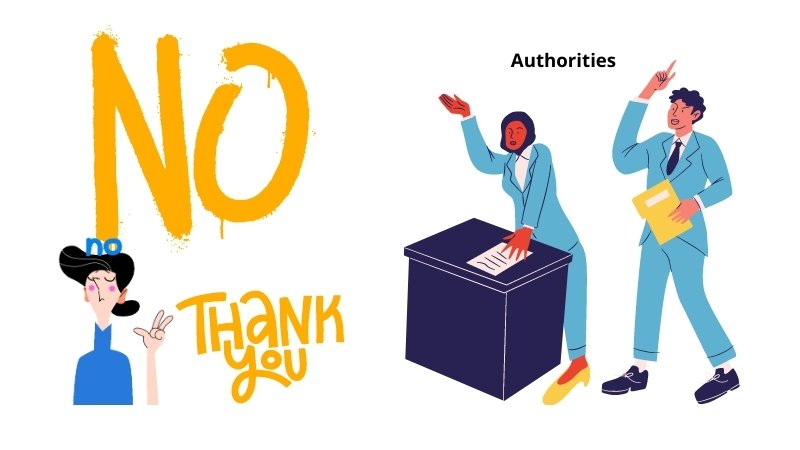
From the moment we take birth, everyone starts propaganda to brainwash us, including our parents and teachers.
Sound weird, right?
They tell us what to do, what is right, and what is wrong.
Then as we grow up, society starts to condition us.
They tell us how you should behave, what’s the best thing you should do, what you are allowed to do, what are taboo, and what is highly respectable.
If this isn’t enough, there are many religions and ideologies that require you to have complete faith in a supreme reality.
All the religious books and gurus promise you to get to the ultimate truth or self-realization.
The author says that he isn’t against any of these things.
The point here is not to blame any religion or ideology.
The author tries to say that we have accepted the idea that we should trust authorities, the idea that some genius people have figured something out, and following them will grant us a passage to the heavens.
The question here is:
Can you look at yourself and this world without any conditioning?
When we allow authorities to guide us, it creates a conflict.
For instance:
Your teacher says that you are good at Maths. But you know that Maths isn’t something that you like.
But since you have accepted your teacher as an authority, you’ll create unnecessary friction in your mind.
“Should I choose Maths?”
“What if I don’t do as my teacher says?”
“What would my parents think of me?”
“Should I listen to myself or my parents and teachers?”
Sound familiar?
We fall into such silly conflicts in our daily lives, which stem from the friction created by contradictory beliefs and opinions.
How do we get conditioned like this?
Why do we even need authorities to guide us?
You can put arguments like “We should trust our parents and teachers as they want good for us.”
Yes, there is no doubt that our parents and teachers think of our welfare.
But what about you?
Why can’t you find solutions to your problems?
The author says that most people never look at reality.
They live a traditional life based on years of propaganda. They live a life that they think would be best as per the conventional ideas.
There is nothing new. Everything is old.
Or in other words:
Most people never ask why they are living such a life.
They are mechanical!
As if they have been programmed to live in a certain way.
They find escapes.
They think that there is some guru out there who has some magical system, following which they can solve all their problems.
They sign up for programs that promise them a step-by-step course to enlightenment.
The author says that you should stop looking for authorities to fix your problems.
You are the only one who can solve your problem.
Let’s say you are having a problem of ‘loneliness.’
Here is what most people would do:
They would search for online courses promising them to solve their loneliness problem.
But can they really get rid of loneliness by joining a course?
The truth is:
Nobody can solve your loneliness problem. It’s self-created.
You are never alone.
You are always with your thoughts dancing around in your head.
Why do you even need another person to begin with?
Isn’t solitude one of the best things in the world?
Again, why is this happening?
Why do we always keep looking at the authorities to solve our problems?
The author says:
We are afraid to look at ourselves.
Do we even know how to look at anything?
Most people don’t know how to look.
When they look, they merely look through their bundle of memories, consisting of beliefs, ideas, opinions, traditions, etc.
We never really look. (This is a complex concept. Keep reading till the end.)
The moment you accept someone as the authority, you create unnecessary friction, which results in a waste of energy.
Yes, the same energy that could be used to live gets wasted in dealing with unwanted contradictory ideas.
What if you could live as if every day was new?
What if you could live every day as if you were born yesterday?
What if you could look at everything as if you were seeing it for the first time?
Wouldn’t it be beautiful to have a life without any burden of thought?
Again, do we even know what beauty is?
Sound like a dream, right?
What if you had no memory? Then you wouldn’t have any thoughts to trouble you.
But the reality is:
We need our thoughts and memories because they are helpful tools.
The problem is that we are too attached to them that we can’t look at anything without them.
Isn’t this slavery? Isn’t this bondage?
Don’t we need freedom?
You can listen to thousands of authorities. And every person would tell you a solution that they think would work for you.
But the true solution can only come from you.
You just need to look at your mind without any psychological bias.
Don’t believe anything blindly. It’ll only create friction in your mind.
You need to be free at the level of your mind to look at things.
The author says that only then can you achieve true freedom.
Throughout this book, the author tries to say that we have stopped questioning. And have started to see things through biases.
We never question ourselves.
We never look at ourselves.
We keep expecting or hoping someone would guide us and help us – even after becoming adults.
Do you have answers to all your problems? I assume you don’t.
Maybe you think you have. But you don’t know everything. That’s because nobody has all the answers.
And if you think you know everything, you are only fooling your mind.
Sounds rude. But it’s true.
Don’t just take my word.
Look within the depths of your mind.
Find out if what you are reading is true or not.
You see, that’s the reason that systems created by any guru don’t work for all. Because they are not particularly designed for a single person.
They are created for the masses.
That’s why you need to learn how to look at your mind.
I hope you will now look at things differently if you have read this far. I hope you’ll question everything you know so far.
It’s scary. Isn’t it?
To look at what you know and put a question mark on it.
Most people never do this. They just find means of escape.
That’s why they keep struggling all their lives.
They keep looking for that one guru who they believe would destroy all their worries.
It’s okay if you don’t agree with some of the ideas above. Again, that’s the whole point.
Isn’t it?
You need to find those answers yourself.
Don’t just accept anything without questioning it.
Connecting the dots: In The Rudest Book Ever Summary, we talked about why you should not think of your parents as a God. We learned why parents are just like ordinary people. They, too, have their weaknesses and strengths. We must not think that they hold the answers to all the puzzling life problems.
Knowledge is different than learning
Well, there is no doubt that both of these words are different.
But we often used both ‘knowledge’ and ‘learning’ interchangeably.
When someone says that I’m learning, we imply that he has an excellent knowledge of it.
But the author gives us a different perspective.
He says that knowledge is always in the past. While learning is always in the present.
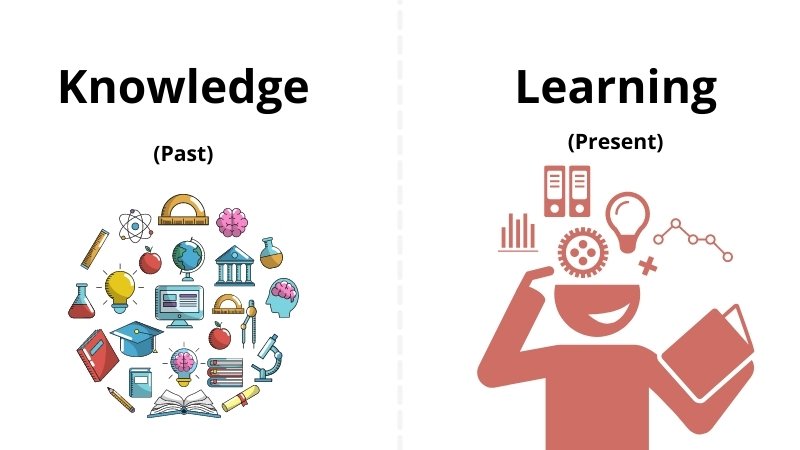
Most of us don’t live in the present.
We live in the past.
Allow me to explain.
When we look at anything, we always see its image. And that image is formed out of our knowledge.
For instance, when looking at a tree, you think you are looking at that tree with your full attention. You believe that you are present there.
But you only look at the image of the tree, which you have formed over the years. (Psychologically)
At that moment, you still possess thoughts and beliefs about that tree.
You are not beholding the true beauty of that tree.
You are entangled in your own thoughts.
And when you are in such an entangled state, you see through your knowledge.
You are living in the past.
You are not actually looking at that tree.
So when we see anything, it might look like we are learning about it.
But we don’t.
Why? Because learning is always in the present.
And most people never live in the present.
They are always worried about their old beliefs, opinions, and traditions.
Here is what you can do to understand this concept:
Whenever you look at anything, simply pay attention to your thoughts.
Remember, you have to observe as if you are looking at something for the very first time.
When you do this, at that very moment, you are learning.
But the moment your thoughts fill your head, you have stopped learning.
Now you are not learning anymore.
Now you are looking through your conditioning, which is the knowledge itself.
And as the author has put:
Knowledge is of the past. You can’t know the present.
When you are in the present moment, you are only learning.
Let me give you another example:
Let’s say you are looking at a painting.
Whether you find that painting beautiful or ugly will depend on your conditioning.
You have an image in your mind about what is beautiful and what is ugly.
But the moment you let go of that image in your mind and simply look at that painting for what it is, you are in the present.
Now you are not justifying that image and putting labels of ‘beautiful,’ ‘decent,’ or ‘ugly.‘
Now you are simply looking at it as a child.
You are not saying that you already know; you look with fresh eyes.
As if you are looking at that painting for the very first time.
And at that moment, you are learning.
Only a few people will understand this.
You’ll have to read the book multiple times to understand this better.
The author says that:
“The Observer Is The Observed”
I leave it up to you to understand this.
This is hard to understand.
Not because it’s hard, but because we have a conditioned brain. Our brain is so complicated that it can’t understand simplicity anymore.
Therefore only a few people will be able to understand the meaning of the phrase above.
You get the ultimate freedom and live a life of beauty when you are free from your past.
When you are free from what you know, you are free from what you call ‘knowledge.’ That’s when you experience tremendous joy in your life.
Your energies are free and not distracted.
That’s when you actually live.
Don’t believe all this blindly. Investigate yourself.
Ask yourself:
“Is it true? Do I always see through my own conditioning?”
“How many times have I failed to look at things in their totality and not in fragments?”
“What holds me back from fully looking at anything?”
“Is it fear that stops me from looking at the whole picture?”
“Or is it something else?”
Keep investigating because unless you question, there will always be a conflict.
Remember, if you are not questioning these ideas, you are accepting the authority.
And it’s only going to create contradictions in your mind, so investigate as much as you can.
You will find it hard initially, but over time, you’ll realize that you have become better at looking at things as a whole, not in fragments.
Then there will be no conflicts between what you think and what you think you should be thinking.
This is the goal, right?
To achieve true freedom. Both at the psychological and physical level.
Unfortunately, our minds are trained to break things down and understand them in abstractions.
When you look at a map, do you look at it as a whole?
Or do you pay attention to a particular part of the map?
Most people switch their attention from one part to another. That’s how our minds work.
We are not trained to look at anything as a whole.
We see and live in fragments.
Pleasure and pain are two sides of the same coin
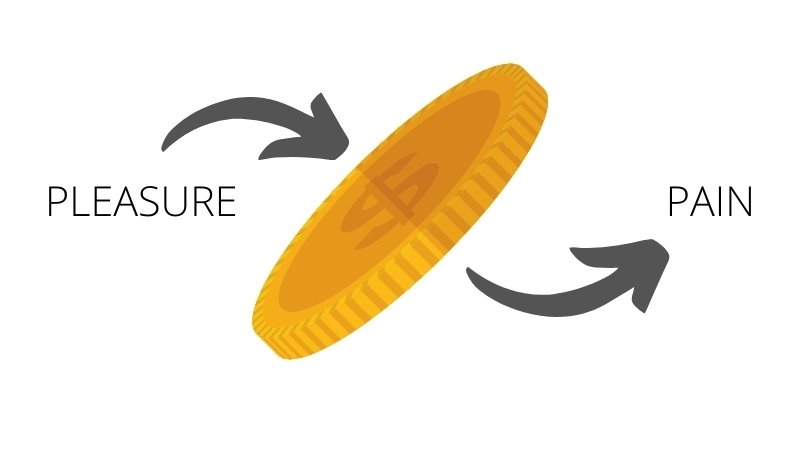
Okay, so what do you want: Pleasure or Pain?
Nobody wants pain.
Or do you?
We love pleasures.
Everything we do is done only for the sake of pleasure.
Even when you say you want pain, you secretly desire pleasure.
So is it wrong to desire pleasure?
Most people think it’s not good to desire pleasure. They say ‘pleasure is bad.’
Pleasure is often associated with fulfilling heavenly desires like money, status, prestige, power, etc.
And pain is often associated with activities like hard work, loss of money, diseases, etc.
So what are we trying to achieve here?
When we think like this in terms of pleasure and pain, we think in fragments.
Scriptures call it dualism: To think in terms of opposite pairs.
For example:
- Day and night
- Pleasure and pain
- Good and bad
- Light and darkness
- Tall and short
- Positive and negative
These opposites can’t exist without each other.
Only the truth is non-dual.
Deriving from this idea, the author says that pleasure and pain are connected.
Pleasure can’t exist without pain.
Let me explain.
When you are seeking pleasure, you want to avoid pain.
And when you are trying to avoid pain, you are secretly seeking pleasure.
When you do this, you are not concerned about the truth. You are worried about the pleasure, which is connected to the pain.
Almost everybody falls prey to this.
We all pursue pleasures without thinking about the fact that this pursuit of pleasure will ultimately bring us pain because they are connected.
Why do we keep pursuing pleasure then?
At the psychological level, there are desires, and then there are thoughts based on those desires.
The author says that thoughts want to repeat a pleasurable experience.
He even says that thoughts are always old as they stem from memory.
Do you understand now?
Thoughts and desires create conflicts.
That’s why we often divide our entire experience as painful and pleasurable.
We get mechanical as we try to fill our minds with happy thoughts.
This further creates bondage.
You can’t be truly free from your mind unless you understand this weird structure of your mind.
Connecting the dots: We also discussed a similar thing in The Happiness Trap Summary. As long as you keep pursuing happy thoughts, you unconsciously invite negative thoughts. They are both connected. Instead, you should simply look at what’s happening in your mind. And understand its structure. This will automatically end this cycle.
The fragmented way of thinking breeds violence
If you look at the history of humankind, there have been many wars. They only represent the violent behavior of the human mind.
The author asks where do the violence and aggression come from?
It comes from the mind. Doesn’t it?
It’s because we have started looking at the world in a very fragmented way.
Okay, so what does it mean to look in a fragmented way?
Put simply, when you create boundaries between yourself and the universe, you look at it in fragments.
Here are a few words that represent how we break things down:
- Your time, my time
- Your house, my house
- Your country, my country
- Your burger, my burger
- Your body, my body
- Your business, my business
- Your friend, my friend
- Your assets, my assets
- Your land, my land
- Your religion, my religion
- Your language, my language
- Your ideas, my ideas
- Your problem, my problem
Millions of examples show our fragmented perception of reality.
So should you stop thinking in fragments?
In our daily lives, we often need to use our intellect, whose only job is to fragment, to understand reality.
I think the author isn’t against seeing in fragments.
But we must also know to see the reality as ‘one.’ As a whole.
Unfortunately, we have become at seeing in fragments. Thanks to our intellect.
And sadly, we don’t know how to look in totality.
Now, as long as there are boundaries, violence will be there.
Because when we see in fragments, we create confusion, which creates fear and insecurities inside our minds.
Ultimately, it creates violence.
The solution is to look at everything in the universe as one with you.
We must not think that we are separate from the universe.
It might sound weird, but the universe represents our own minds. And most things stem from there.
So if somehow we fix it or even better understand it, the problems like violence and fear will simply vanish.
Live in the present. Not in the past.
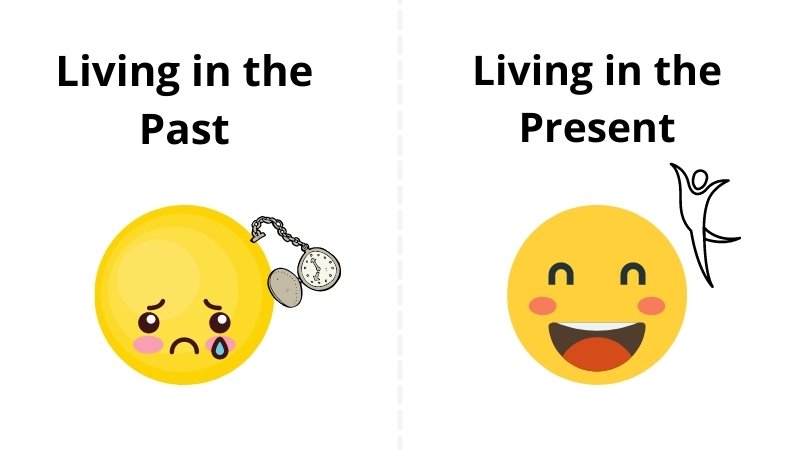
Our mind is a chatterbox. Isn’t it?
It keeps producing lots of unwanted and ugly thoughts.
Yes, sometimes, it also produces decent thoughts. But most of the time, it only makes our head heavier by creating a truckload of unwanted thoughts.
Doesn’t it?
The author says that all your thoughts, opinions, and beliefs come from your past, which is the memory.
Most people are just living in the past.
When you are troubled with your past, you merely play with your memory.
Physically, you may be there. But psychologically, you are not much alive.
So how do you overcome this?
The answer is pretty simple and yet, at the same time, hard to apply.
Just look with fresh eyes.
Don’t let your memories cloud your vision.
Don’t assume that you already know. Think as if you don’t know anything.
Think as if you were just born yesterday.
Think that you are just a child who wants to learn about this world.
Only then will you be able to actually. Only then will you have a fresh look at life.
It’s hard because it’s so simple.
Super weird, isn’t it?
Even Robin Sharma, author of Who Will Cry When You Die (Read full summary), said the same thing in his book. He also talked about how to live in the present moment.
Everyone loves to talk about living in the present moment. But hardly a few people do.
We go back to our old ways.
And continue to keep living in our past, burdened by our beliefs and traditions.
To be able to do it, you will have to experience it.
Don’t just say, “Hmm… Fine… Fine… I have heard about living in the present. Let me read the next lesson.”
Experience it!
Only then will you truly understand it.
Freedom From The Known Takeaways
Now let’s recap the big lessons that you learned from this summary:
- Be free from your conditioning that you’ve got your from the external world.
- Don’t create unnecessary conflicts in your mind.
- True love is when there is no sense of self.
- Don’t let authorities guide you every time. Learn to solve your own problems.
- Don’t be dependent on any authority.
- When you look anything, you need to look it as if you are seeing for the first time.
- Don’t live in the past.
- Your thoughts and memories are old. Don’t stay stuck in them.
- True freedom is when you are free from your curse of knowledge.
- Try to see things in their totality. Not in fragments.
Freedom From The Known Quotes
These are some of my favorite quotes from this book by J. Krishnamurti:
Any movement which is worth while, any action which has any deep significance, must begin with each one of us. I must change first; I must see what is the nature and structure of my relationship with the world – and in the very seeing is doing.
A man who knows that he is silent, who knows that he loves, does not what love is or what silence is.
You can’t depend upon anybody. There is no guide, no teacher, no authority. There is only you – your relationship with others and with the world- there is nothing else.
Other recommended book summaries
- The Voice Of Knowledge by Miguel Ruiz (Summary)
- The Art Of Thinking Clearly by Rolf Dobelli (Summary)
- Thoughts Without A Thinker by Mark Epstein (Summary)
- You Are Not So Smart by David Mcraney (Summary)
- What You Think Of Me Is None Of My Business (Summary)
Freedom From The Known Review
[amazon box=”0060648082″ template=”horizontal”]
This book is simply brilliant. I highly recommend that you read this.
Yes, you may find it perplexing at first. Even I had to read this book 3-4 times to understand what the author was trying to say.
But once you understand it, your life will change.
I’m not just saying this because I love reading J Krishnamurti books.
I hadn’t heard the author’s name before.
I’ll admit. He was one of the greatest philosophers.
Give this book a read. Then thank me later.
You won’t regret reading this book.
But if you are a beginner, you may not understand some concepts like ‘The Observer Is The Observed.‘
And when I say ‘understand,’ I mean ‘to use the concepts in your daily life.’
Even a few ideas from this book are enough to bring a transformation within yourself.
Purchase this book on Amazon: [amazon link=”0060648082″]
Now it’s your turn
I hope you enjoyed reading this book summary.
I wish to review and summarize more of Krishnamurti’s books in the future.
What do you think about this summary?
What lessons did you find the most interesting?
Let me know your thoughts in the comments below.
And share this with other people so that they also learn how to look without a sense of self and any conditioning.
